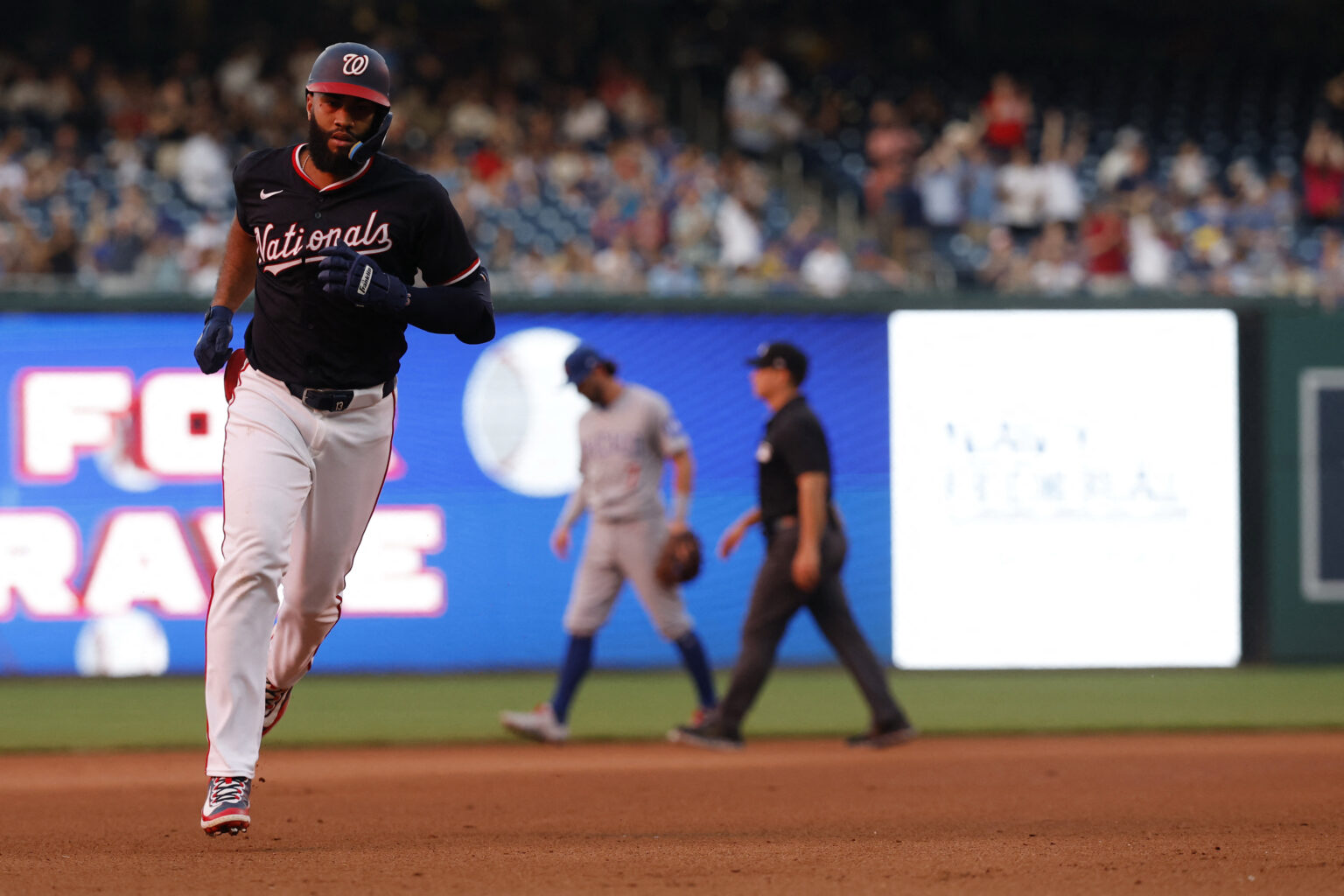Clutch Home Run Seals Nationals’ Victory Over Cubs in a Tight Contest
In a game that showcased resilience and strategic patience, Amed Rosario delivered a pivotal seventh-inning swing that will likely be remembered more for its audacity than its textbook technique. Batting from the right side, Rosario reached for a fastball from Chicago Cubs starter Matthew Boyd-a pitch that might have been intended for a left-handed batter-and made contact in a way that defied conventional wisdom. The ball soared just beyond the right-field fence, securing the decisive run in Washington’s 2-0 victory over the Cubs, who entered the game with the best record in the National League.
Unconventional Approach Pays Off
Rosario’s at-bat was unconventional, and perhaps not recommended in coaching clinics, but his boldness paid dividends. “When I was on deck, I was prepared for anything,” Rosario explained through an interpreter. “I saw the pitch, and I knew I was going to swing.” His daring approach exemplifies the unpredictable nature of baseball, where sometimes taking a risk can lead to game-changing moments.
Late-Inning Insurance and Strong Closing
Earlier in the game, Nasim Nuñez contributed a crucial insurance run with a double in an extended eighth-inning at-bat that lasted ten pitches. This added cushion proved vital when Kyle Finnegan, Washington’s closer, faced a tense ninth inning with runners on the corners and two outs. Finnegan managed to induce a groundout from Kyle Tucker, sealing his 17th save of the season and preserving the shutout.
“Our team’s mental toughness is our strength,” Nuñez remarked. “We understand the importance of staying focused, especially after a period of inactivity, and we do whatever it takes to help the team succeed.”
Pitching Excellence and Defensive Resilience
Starting pitcher MacKenzie Gore (3-5) earned his first win since April 19, despite a season that has seen him dominate in strikeouts. With seven punchouts on the night, Gore lowered his ERA to 2.87 and increased his MLB-leading strikeout total to 108 in just over 75 innings. His performance was particularly impressive considering he faced one of the league’s most potent offenses, which had threatened to break through early in the game.
Strategic Pitching and Adaptability
Gore’s approach involved a strategic reliance on his fastball, throwing it 55 times out of 94 pitches. Once he established command of his fastball, he effectively kept the Cubs guessing, inducing numerous swings and misses-11 of 20 secondary pitches swung at by the Cubs resulted in whiffs. His ability to adapt and execute under pressure was evident, especially after a shaky first inning that saw him needing 24 pitches to get through it, yet only 70 pitches to complete the subsequent six frames.
Defensive Standouts and Key Moments
The Cubs, known for their offensive prowess against left-handed pitchers this season, started strong with three consecutive singles, loading the bases with no outs. However, Gore responded with composure, striking out Pete Crow-Armstrong and Dansby Swanson before inducing Nico Hoerner to pop out. From that point onward, Gore did not allow another hit, showcasing his resilience and control.
Adjustments and Pitch Selection
Gore’s reduced reliance on his fastball this season has been a strategic adjustment, yet on this night, he leaned heavily on it. Of his 94 pitches, 55 were fastballs, which he used to establish dominance in the strike zone. This approach paid off, as the Cubs’ batters swung and missed at nearly half of their swings on secondary pitches, highlighting Gore’s effectiveness in mixing speeds and locations.
Game Dynamics and Managerial Insights
The game was a classic pitchers’ duel, with Boyd matching Gore pitch for pitch and carrying a no-hitter into the sixth inning before Robert Hassell III broke it up with a two-out single. Manager Dave Martinez praised the team’s grit, noting, “Sometimes, when facing a pitcher like that, you have to fight for every inch. We did exactly that tonight.”
Rosario’s Impact and Team Strategy
Rosario’s game-winning hit was particularly significant given his recent absence since May 25. Typically a starter against left-handed pitchers, Rosario’s recent appearances against right-handed starters on their West Coast trip saw the Nationals often field a lineup with seven left-handed hitters, resulting in 43 runs scored over seven games. Wednesday’s matchup against a southpaw finally allowed Rosario to showcase his offensive prowess.
Despite a challenging offseason where many of Washington’s signings underperformed, Rosario, who signed a one-year, $1 million contract, has been a standout. Brought in to provide veteran leadership and bolster the team’s performance against left-handed pitching, Rosario has exceeded expectations with a .362 batting average and a .949 OPS against lefties as of this game.
Clutch Performance and Future Outlook
Rosario’s approach is rooted in mental preparation; he always prepares as if he’s in the lineup, regardless of the day’s circumstances. His decisive swing in the seventh inning exemplified this mindset. When he first made contact, he wasn’t sure if the ball would clear the fence, so he sprinted toward first. Seeing the right fielder run out of room, Rosario confidently rounded the bases, celebrating a game-winning home run.
Injury Updates and Player Development
On the injury front, right-handed reliever Mason Thompson continues his recovery from Tommy John surgery, having thrown a simulated game in West Palm Beach, Florida. Manager Dave Martinez expressed optimism about Thompson’s progress, hoping he can soon join a rehab assignment if his next few outings go well, adding depth to the Nationals’ bullpen for the stretch run.

